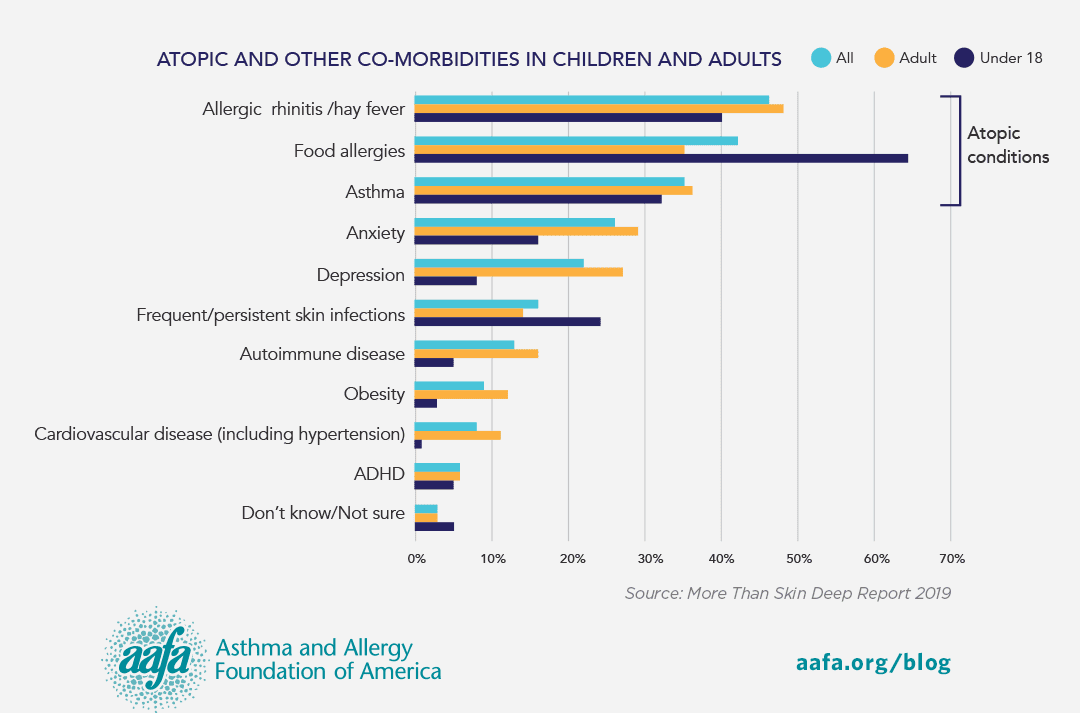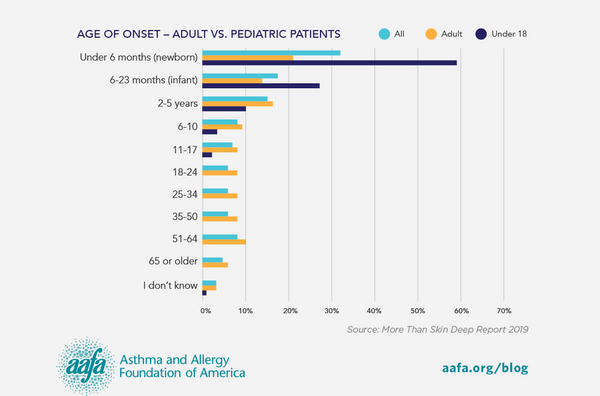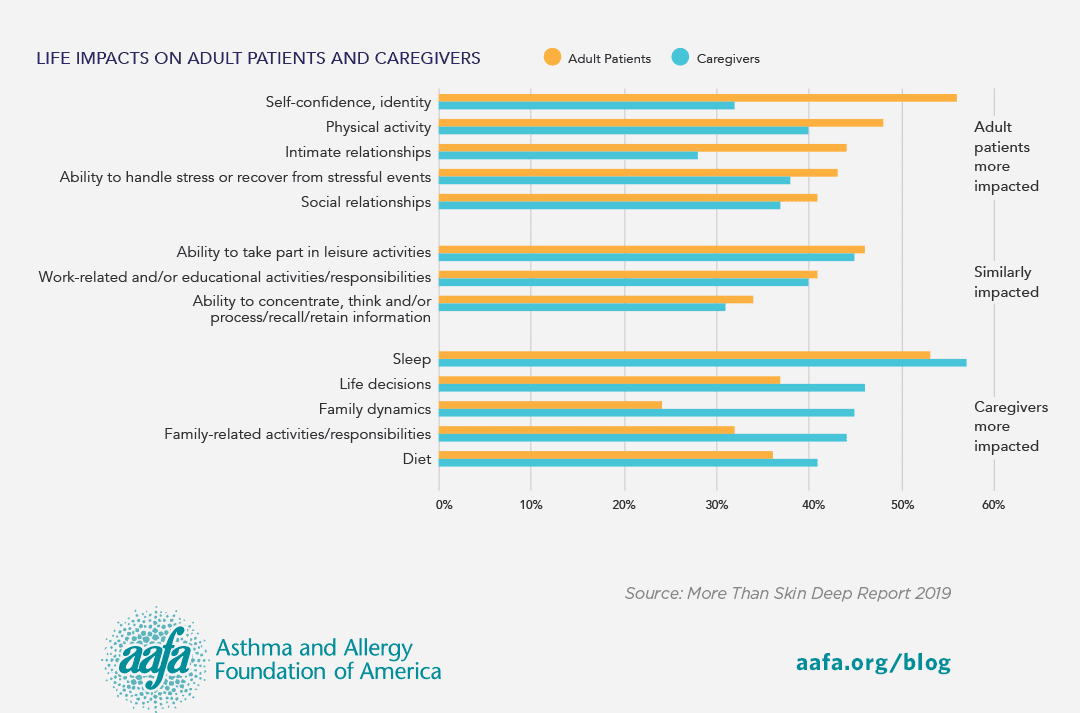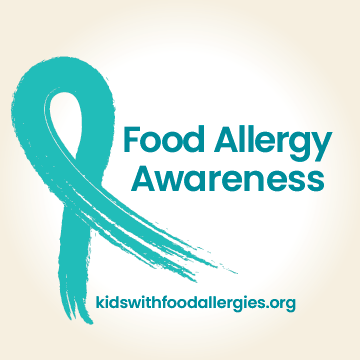Eczema is common among children with food allergies. That’s not surprising since they are both caused by reactions of the immune system.
Atopic dermatitis (AD) is the most common form of eczema. Many people think of eczema as “dry skin” or “sensitive skin.” But people who don’t know about eczema aren’t aware of the social, emotional, and financial impact it can have on families who manage it.
To raise awareness about eczema, the Asthma and Allergy Foundation of America (AAFA) and five other patient organizations came together on a project called “More Than Skin Deep.” We asked patients and caregivers what it is like to live with and manage eczema. We then presented the results to the Food and Drug Administration (FDA) to help inform research and development for eczema treatments. (Kids With Food Allergies is a division of AAFA.)
The Impacts of Eczema on Children and Their Families
Asthma, allergies, and atopic dermatitis are all allergic diseases. Many children have more than one of these conditions. They are also part of the allergic diseases called the “allergic march.” It is also sometimes called the “atopic march.” The allergic march tends to start with dry skin and then moves to eczema, food allergies, nasal allergies (rhinitis), and then asthma.
Atopic March
Our survey found that many people with eczema also had at least one of these five conditions:
- Allergic rhinitis (46%)
- Food allergy (42%)
- Asthma (35%)
- Anxiety (26%)
- Depression (22%)
The top three conditions on this list are part of the atopic march.
Eczema Often Starts in Childhood
Eczema, the start of the allergic march, often starts early in life (although it can begin at any age). Our survey found that 72% of people started having eczema symptoms as a child. About one-third said symptoms started within the first six months of life. Another 28% said their symptoms started between 6 months and 5 years of age.
Researchers are looking into if using moisturizers on a baby’s skin reduces the risk of developing eczema.1,2
Common Eczema Symptoms in Children
In our “More Than Skin Deep” survey, we asked about the top three eczema symptoms that caused the most issues and discomfort. People said the most troublesome symptoms were:
- Itching (79%)
- Inflamed skin (47%)
- Sleep disturbance (29%)
- Dry, sensitive skin (23%)
- Rough, leathery, or scaly patches of skin (20%)
Some symptoms seemed to cause more issues for children than adults. Nearly half of caregivers said their child had trouble sleeping because of eczema. But only 22% of adults said they had trouble sleeping.
Eczema’s Impacts on Caregivers
Eczema can affect caregivers as well. Adult caregivers said caring for someone with eczema affected their:
- Sleep
- Life decisions
- Family-related activities
- Family dynamics
- Diet
Learn more about the “More Than Skin Deep” project.
Raise Awareness About Eczema
October is Eczema Awareness Month. You can help people understand eczema by sharing some of our awareness resources and tools. Just like food allergies, there is a lot about eczema that is misunderstood. Help us teach people about eczema for better treatment, research, understanding, and overall awareness!
JOIN NOW
References
1. Horimukai K, Morita K, Narita M, et al. Application of moisturizer to neonates prevents development of atopic dermatitis. J Allergy Clin Immunol. 2014;134(4):824-830.e6. doi:10.1016/j.jaci.2014.07.060
2. Chalmers JR, Haines RH, Bradshaw LE, et al. Daily emollient during infancy for prevention of eczema: the BEEP randomised controlled trial. Lancet. 2020;395(10228):962-972. doi:10.1016/s0140-6736(19)32984-8













Comments (0)